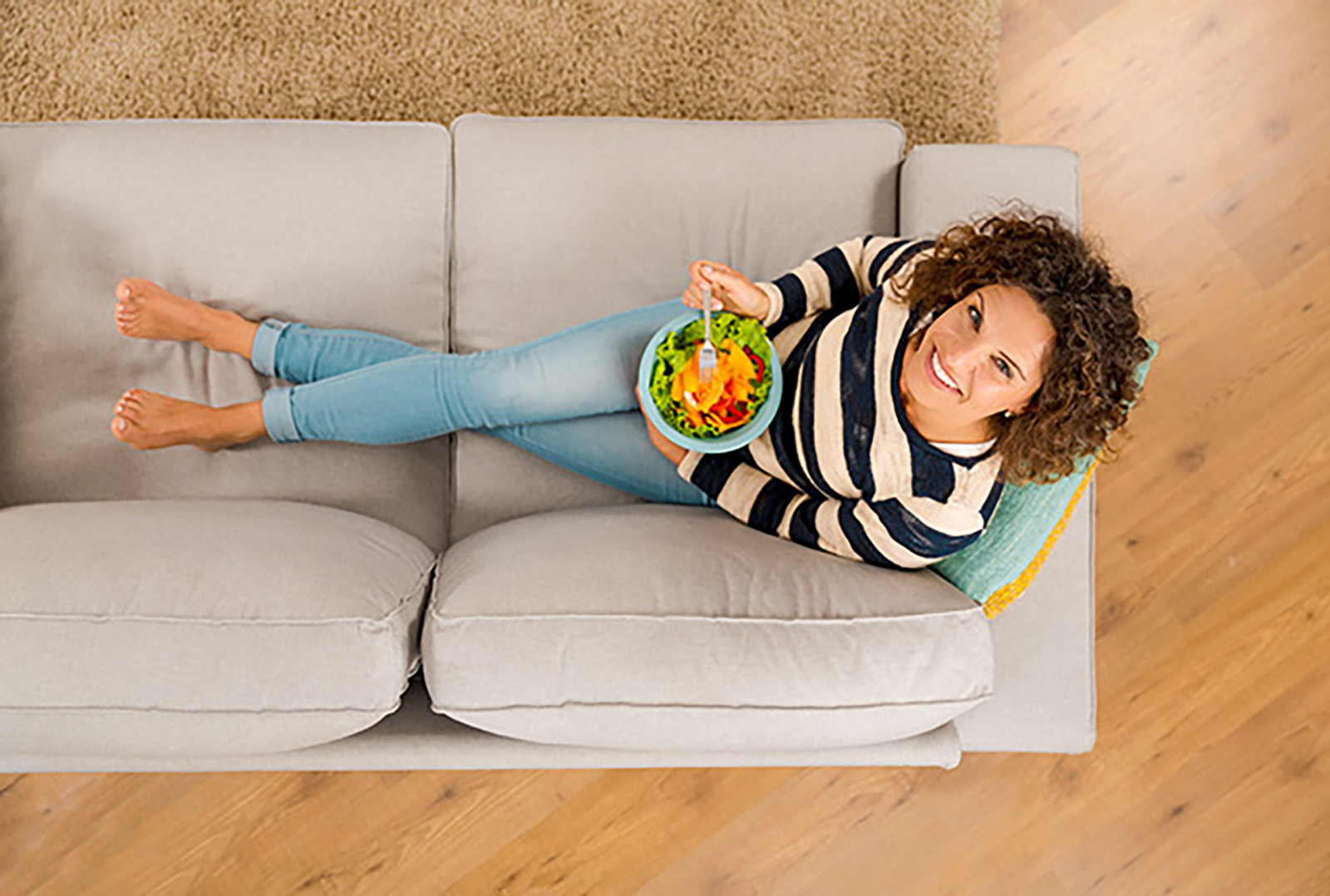The ketogenic diet, being very low carb in nature, requires that you limit your daily carb intake to only 20-50 grams. Most of your calories should come from fat while protein is kept moderate. As a result of this eating pattern, your fat stores get broken down, making it an effective weight loss regimen.
But, despite that, some dieters are not losing weight on keto. Others may even experience the opposite — they gain unwanted weight instead. It’s also possible to progress quicker at the beginning, followed by a plateau.
11 Reasons Why You’re Not Losing Weight on Keto
Why is this the case? What can be done? Fortunately, there are adjustments you can make to have keto working to your advantage again. And more importantly, bear in mind that losing weight isn’t always linear. We hope this article provides clarity!
1. You’re actually not in ketosis
You may be keeping your diet “keto-friendly,” but that doesn’t necessarily mean that you’ll be in ketosis. To enter nutritional ketosis, you should be cutting down total carbs to 20-50 grams per day — more specifically, total carbs, not net carbs.
It’s quite easy to lose track of your carb intake unless you’re closely monitoring your macronutrients. You can do this through simple food journaling or logging your food into a keto macro app.
Make sure to also confirm that you’re in ketosis using a urine test strip or ketone meter (blood meter or breath analyzer). Testing for ketones at home is a convenient way to stay on top of your diet.
2. Excess calorie intake
Yes, it’s possible for you to be in ketosis but not losing weight. One of the reasons for that is consuming too many calories on keto. Eating more calories than you burn causes your body to store fat unnecessarily.
This is especially true with high-fat foods like pork rinds, keto bars, and nut butters. (For context, each gram of fat has 9 calories.) Also, it’s easy to overconsume these foods since they’re highly palatable. Just because the keto diet is high in fat, doesn’t mean you can eat unlimited amounts of fat.
Paying attention to your calorie intake is still key to achieving your desired body weight.
3. Snacking frequently
On the positive side, snacking can help meet your nutrition needs and boost your energy. However, overdoing it leads to unwanted weight gain through excess calories (1).
If you’ve stopped losing weight on keto, you might need to reassess your snacking habits. Are you often eating those mixed nuts after dinner? Making a habit of treating yourself to store-bought keto treats like bars and fat bombs?
Be careful to not snack out of boredom or due to being stressed emotionally. Also, aim for snacks that truly satisfy your hunger (if you’re hungry) and are nutrient-dense.
4. Sedentary lifestyle
Regular physical activity is essential for overall health. It increases the number of calories you burn, helping create a calorie deficit for weight loss. This is why, on a ketogenic diet, exercise is considered a vital tool to continue to make progress with your fitness goals.
So, find opportunities to move more. Start with simple habits like walking daily, spending more time doing house chores, and taking the stairs instead of the elevator.
5. Dependence on artificial sweeteners
You’re probably wondering why your weight loss is slow on keto, and a valid reason could be that excess consumption of low-carb sweeteners. These keto sweeteners reduce your overall carbohydrate intake; however, some of them, like sucralose, decrease insulin sensitivity and cause your body to store fat (2).
If you want to know whether an artificial sweetener kicks you out of ketosis, consider testing your body’s reaction. Use a ketone meter or blood glucose meter. Additionally, try to go a few weeks without these sweeteners and see if that makes a difference.
6. Drinking alcohol
Some alcoholic drinks can fit your keto diet such as pure spirits and certain beers. However, you have to be aware that alcohol can ultimately stop weight loss by triggering unhealthy food cravings, affecting your sleep, and providing empty calories.
Don’t just know which options are fine on a keto diet — more importantly, don’t overindulge. If you’re noticing slower weight loss, then you might want to cut back on alcohol in general.
7. Too much stress in your life
Excessive stress increases the hormone cortisol, a hormone that plays a role in weight gain. Cortisol may increase your appetite so that you prefer foods that are more palatable. It also causes fat to get stored in your abdomen (3).
Take note that cortisol isn’t a bad hormone. We need it especially in fight-or-flight situations. The problem is too much cortisol, which is why it’s important to keep your stress under control.
8. Food sensitivities even on keto
You may have gained weight on keto due to being intolerant to some foods. Yes, it does happen even when you’re eating the most natural and nutrient-dense food you can think of. It’s important to understand that we’re all unique individuals and react to substances in foods differently.
Certain food intolerances are often associated with bloating as a symptom, which affects the number on the scale. Identifying which foods that trigger weight gain will take trial and error, but a good place to start is keeping a food diary.
Also, consider talking to your healthcare professional. They may recommend trying an elimination diet as a temporary solution.
9. Poor sleep quality
Inadequate sleep wrecks havoc on your waistline in different ways. For example, it can lead to missed workouts due to low energy. Studies also show that inadequate sleep increases your hunger and appetite, and lowers your resistance to certain foods (4).
Most adults should aim to get 7-9 hours of sleep each night. This allows you to function at your highest potential while also preventing unnecessary weight gain on keto.
10. Overeating fats
Not eating enough fat on a keto diet will make you go hungry often. Your hormones may suffer, too. But, unfortunately, some people think that just because most of their calories should come from fat, that they can eat as much as they would like.
Remember that fat has the highest calories per gram. To ensure that you’re eating the right amounts for ketosis, calculate your fat macros. Then stick to that. Additionally, choose healthy fat sources such as eggs, red meat, MCT oil, and fatty fish.
11. Undiagnosed medical condition
Weight gain can also have medical causes, which you might not be aware of while on keto. Examples of these medical conditions include hypothyroidism, polycystic ovarian syndrome (PCOS), and kidney problems.
If you’ve optimized your diet but your weight doesn’t seem to come off, you should consult with your doctor. They are the best people to determine what has caused your weight gain and how you can deal with it.
Summary
Whether you’re a male or female not losing weight on keto, this article should help you rethink your current lifestyle. Small strategies like paying more attention to your macros, testing for ketosis, and managing your stress can make a big difference in reaching your goals.
Finally, don’t get discouraged if you haven’t lost weight as soon as you would have liked. Listen to your body, continue learning, get extra support if possible, and stay patient.
References:
- Harvard Chan. The Science of Snacking
- Lertrit A, Srimachai S, Saetung S et al. Effects of sucralose on insulin and glucagon-like peptide-1 secretion in healthy subjects: a randomized, double-blind, placebo-controlled trial. 2018 April 21
- van der Valk E, Savas M, van Rossum E. Stress and Obesity: Are There More Susceptible Individuals? 2018 April 16
- Hicklin T. Molecular ties between lack of sleep and weight gain. 2016 March 22



